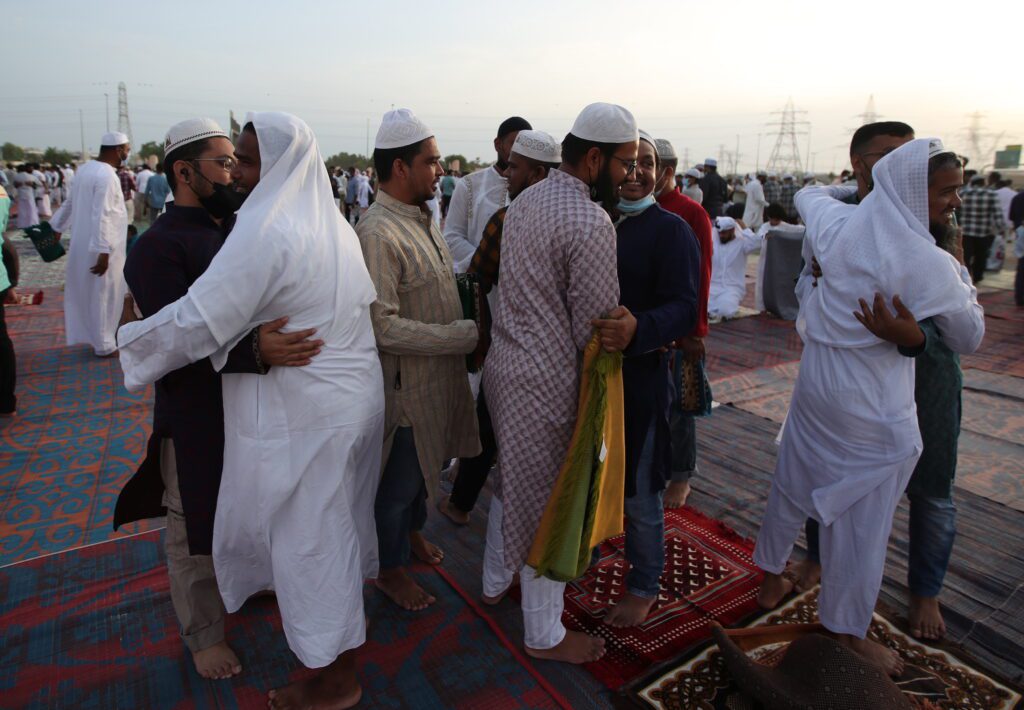In a remarkable display of compassion and goodwill, the United Arab Emirates (UAE) has announced the release of 2,813 prisoners, including over 500 Indian nationals, ahead of Eid-ul-Fitr 2025. This humanitarian gesture, led by UAE President Sheikh Mohamed bin Zayed Al Nahyan and Prime Minister Sheikh Mohammed bin Rashid Al Maktoum, reflects the UAE’s commitment to rehabilitation and social harmony.
A Tradition of Mercy and Forgiveness
The UAE has a long-standing tradition of pardoning prisoners during Ramadan, aligning with Islamic values of mercy and renewal. This annual initiative gives inmates an opportunity to reintegrate into society and reunite with their families in time for Eid celebrations.
For 2025, the UAE leadership has pardoned 1,295 prisoners under the directive of President Sheikh Mohamed bin Zayed Al Nahyan, while 1,518 inmates have been granted clemency by Prime Minister Sheikh Mohammed bin Rashid Al Maktoum. This brings the total to 2,813 prisoners, marking one of the largest pardons in recent years.

Eid-ul-Fitr :The Significance of the Pardon
The release of prisoners serves multiple purposes:
- Encouraging Rehabilitation: Many pardoned individuals were convicted of minor offenses, allowing them a second chance at life.
- Strengthening Families: The return of inmates eases financial and emotional burdens on families who have suffered in their absence.
- Promoting Justice with Compassion: The UAE’s approach balances the enforcement of laws with mercy, reflecting the leadership’s dedication to humanitarian values.
- Boosting Bilateral Ties: The inclusion of over 500 Indian prisoners highlights the UAE’s strong diplomatic relations with India, strengthening the bond between the two nations.
Who Qualifies for Clemency?
The UAE’s pardon process follows strict guidelines:
- Non-violent offenders and those convicted of financial crimes are prioritized.
- Prisoners exhibiting good conduct during their sentence are more likely to be considered.
- Inmates with severe financial distress or health concerns receive priority.
Legal and Administrative Steps
- Verification of Eligible Inmates: The UAE judicial authorities review cases to ensure fairness.
- Coordination with Embassies: Foreign nationals, including Indians, are assisted by their respective embassies for repatriation.
- Debt Settlements: Inmates facing financial penalties receive aid from UAE-based charities and welfare organizations.
- Release and Reintegration: Prisoners receive support, including counseling and reintegration programs, to ease their transition back into society.
Impact on the Indian Community
With over 3.5 million Indians residing in the UAE, the inclusion of 500 Indian prisoners in the pardon list reflects the strong diplomatic and cultural ties between both nations. The Indian Embassy in Abu Dhabi and the Consulate General in Dubai have expressed gratitude towards the UAE leadership for their benevolence.
Many Indian prisoners had been convicted for financial disputes or visa-related violations. Their release not only brings relief to their families but also enhances the UAE’s image as a nation that values justice and humanitarian principles.
A Step Towards a More Compassionate Society
The UAE’s emphasis on rehabilitation over punishment continues to set a global example. Besides granting pardons, the country has introduced alternative sentencing, community service programs, and debt settlement initiatives to support those facing legal challenges.
As the pardoned individuals prepare to reunite with their loved ones, this initiative stands as a testament to the UAE’s commitment to mercy, justice, and social harmony. It reinforces the belief that forgiveness can transform lives, bringing hope and renewed opportunities to thousands.
With Eid-ul-Fitr approaching, this act of clemency symbolizes the true essence of the festive season—compassion, forgiveness, and new beginnings.
Do follow Uae stories for more Updates
New UAE Dirham Symbol: When Will Digital Currency Roll Out? Will Fresh Banknotes Be Issued?













